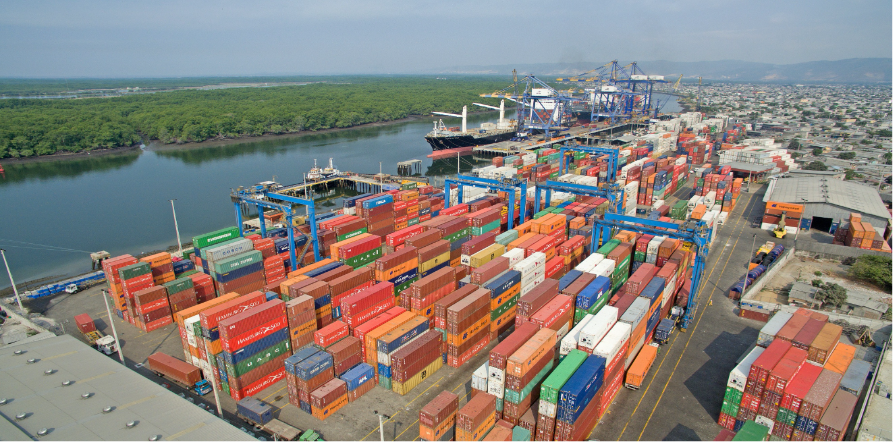Chattogram Port is facing a big challenge. Since the Eid-ul-Azha holiday, the yard packed with full import containers has gone past its storage limit. On June 16, the port’s storage for Full Container Load (FCL) imports reached 40,656 TEUs—just over its capacity of 40,368 TEUs—while total yard capacity is 44,018 TEUs. Before Eid, around June 7, the yard held about 28,000 FCL containers. The holiday caused a sharp drop in container deliveries—from an average of 4,500–5,000 TEUs per day to fewer than 2,000 containers daily. Despite this, container vessel operations continue smoothly. Terminal operators say ships are still leaving within 48 hours, thanks to some space freed up before the holiday. And as of June 16, there were ten container vessels at the outer anchorage, fewer than during earlier customs disruptions. However, experts warn the situation could worsen if deliveries don’t speed up soon. Port users are urging importers to fetch goods promptly. Berth operator Fazle Ekram Chowdhury noted normal deliveries must resume quickly—or operations may become severely disrupted. Port congestion doesn’t only affect imports. Inland Container Depots (ICDs) handling exports are also feeling pressure. In CEPZ and Patenga, ICDs are dealing with clogged roads and limited pre-stacking areas—stalling export containers too. Heavy rain from May 28 to June 5 worsened the problem. Rain limited unloading and delivery activities, creating a 35 percent delay in export shipments. By June 11, the port yard held around 39,000 TEUs—a level near its optimal limit of 30,000 to 35,000 TEUs. The slow delivery and overloaded ICDs are stretching capacity in both core trade flows and logistics support, even affecting agritech and e-commerce supply chains. Agritech exporters transporting seeds and fresh produce are struggling to book vessels, while e-commerce firms wait longer for inventory, which hits startups and small manufacturers relying on timely delivery. The blockade also amplifies costs in the apparel and food-processing industries, as storage fees and demurrage charges rise. To address the backlog, the National Board of Revenue (NBR) has given instructions to speed up the process of clearing customs and releasing containers. They hope speeding up these processes will ease pressure, release yard space, and resume efficient trade and service schedules. Meanwhile, port authorities urge stakeholders in manufacturing, remittance flows, and software-driven supply networks to cooperate in faster cargo movement. The economy of Bangladesh relies heavily on Chattogram Port, which acts as an essential center. Swift action from all sectors—banking, industry, realty, logistics, transport, and healthcare-linked imports—can help restore smooth operations. With focused effort now, the port can emerge from this challenge stronger and more resilient.
Ctg Port Overburdened with Import Containers
4

